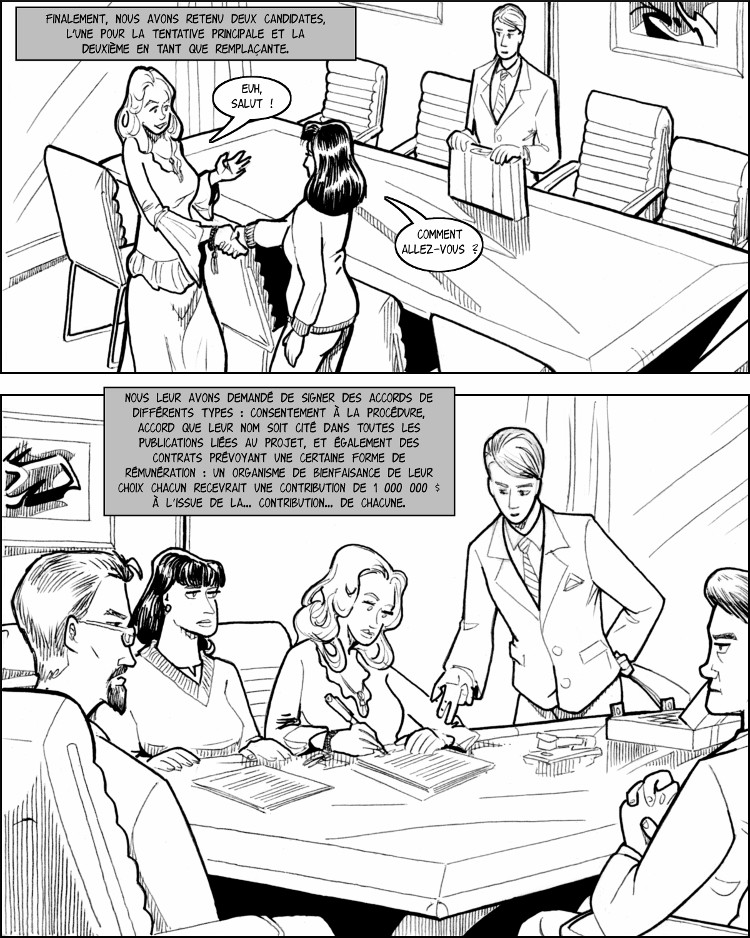

This work is licensed under a Creative Commons Attribution-NonCommercial-ShareAlike 4.0 International License.
PAGE 33 (Two panels)
Panel 1: Probably smaller inset above. Eliza and Daphne meeting in an office somewhere, shaking hands somewhat tentatively.
CAPTION – TURPENTINE NARRATING (1): Eventually, we were down to two candidates, one to serve in the principal attempt and the second as an alternate.
Translation (1): Finalement, nous avons retenu deux candidates, l’une pour la tentative principale et la deuxième en tant que remplaçante.
Eliza (2): Uh, hi!
Translation (2): Euh, salut !
Daphne (3): How do you do.
Comment (3) : The English phrase “how do you do” is often conflated with “how are you?” but this is incorrect. “How do you do” is not an inquiry after someone’s health or mental state the way “how are you?” might be. Rather, it is a form of greeting used by someone of formal manners or high social status when introduced to someone for the first time. One responds to “how do you do” with “how do you do.” It should be translated accordingly.
Translation (3): Comment allez-vous ?
Panel 2: Eliza and Daphne sitting at a table in a richly-appointed conference room of a major law firm. Across from them sit some serious-looking lawyers. Eliza is signing something.
CAPTION – TURPENTINE NARRATING (4): We had them sign agreements of various kinds: consents to the procedure, agreements to prominent mention in all publications related to the project, and also contracts with compensation of a sort: a charity of each’s choosing would get a contribution of $1,000,000 upon each’s completion of her…contribution.
Translation (4): Nous leur avons demandé de signer des accords de différents types : consentement à la procédure, accord que leur nom soit cité dans toutes les publications liées au projet, et également des contrats prévoyant une certaine forme de rémunération : Un organisme de bienfaisance de leur choix chacun recevrait une contribution de 1 000 000 $ à l’issue de la… contribution… de chacune.
![]() Appât (Français/Version longue page)
Appât (Français/Version longue page)
Appât (Français/Version slider)
